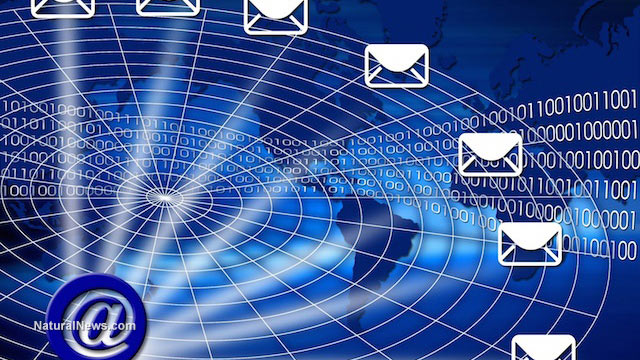Your Private Online Communications May Be Subject to Government Seizure
Is your private online communications, whether they are personal or for your business, protected? Are you sure? Did you know your emails may be subject to legal government seizure, without the need of a court order?
When the Electronic Communications Privacy Act (ECPA) passed in 1986, the Internet did not look like it did today. Storage software, such as ‘the cloud’, was non-existent, and Americans did not conduct the majority of their daily lives online. Despite the technological advancements of the last twenty nine years, our fourth amendment privacy protections have not been amended to include these new forms of communication. This means any document or online data stored for more than 180 days can be seized without a warrant by a government agency. However a new bill, called The Email Privacy Act, is going to change all that if the business community advocates for its release to the House.
What is The Email Privacy Act?
The Email Privacy Act, sponsored by Rep. Kevin Yoder, is an amendment to the current Electronic Communications Privacy Act that will prohibit any provider of remote computing service or electronic communication service to the public from giving any government personnel or agency the contents of any communication that is in electronic storage, or otherwise maintained by that provider, without a court order. It also eliminates the section of the current standing law that ends the protection of electronic information if it has been stored for more the 180 days.
The Email Privacy Act also requires law enforcement agencies within 10 days of receiving a customer’s information, or within 3 days for a governmental entity, to provide a customer whose communications were disclosed by the provider a copy of the warrant and a notice informing them that the information was requested by, and supplied to, the requesting government agency.
How Does The Email Privacy Act Affect You?
The changes the Email Privacy Act will afford a higher level of protection to electronic information, and will serve to strengthen people’s fourth amendment right protecting them from unreasonable searches and seizures. The bill will protect businesses from being harassed by government agencies, or having their finances and employees exposed without a judicially sanctioned warrant. The online marketing community stands to benefit from this act as citizens feel more protected in their use of their online communications, and feel more liberty to do online activities and ecommerce.
Current Status of the Bill and Potential Hang-Ups
As of right now, there is only one major hang-up facing The Email Privacy Act. Civil regulators, such as the Securities and Exchange Commission, insist they need the authority to demand the contents of electronic communications without a warrant, despite the protections afforded to the public by the fourth amendment. SEC Chairwoman, Mary Jo White, has also expressed the concern that requiring warrants to obtain emails could impede financial-fraud investigations. These concerns seem to have gained some sympathy in the Senate as Sens. Mike Lee, R-Utah, and Patrick Leahy, D-Vt., have written a companion bill that also is awaiting action.
Despite these voiced concerns and hold-ups, the current Email Privacy Act has over 284 co-sponsors and the support of the majority of the House. It is currently the most supported bill that is not receiving a hearing, much less a vote.
So How Can You Help?
In order to get this bill onto the House floor for a vote, we need to get it backed by the right men and women. So we are asking that people write Senator Kevin McCarthy at the address below or @Kevin McCarthy, and ask him to join the hundreds of his colleagues who support ECPA reform.
The Honorable Kevin McCarthy
2421 Rayburn House Office Building
Washington, DC 20515
Fax: (202) 225-2908
Civil and law enforcement agencies are trying to work against our civil liberties, just like when the security agencies fought against the USA Freedom Act. We cannot sit idly by and allow government agencies to determine what parts of our lives should be considered private to push their own agendas. When a piece of paper sitting in a drawer has more protection then the information stored online, it is time to move for change. Only by getting this bill to move forward will we see such change.
This post was authored by Elizabeth A. Beasley, Account Manager, Beasley Direct Marketing, Inc.
Elizabeth Beasley serves as an account manager at Beasley Direct Marketing, Inc www.BeasleyDirect.com Elizabeth manages new client onboarding and accounts, social media, corporate presentations, corporate website, and database maintenance. She also serves as an account manager for the Direct Marketing Association of Northern California DMAnc.org, managing event logistics, registration and promotion. She holds a B.A. in Communications from National University.
